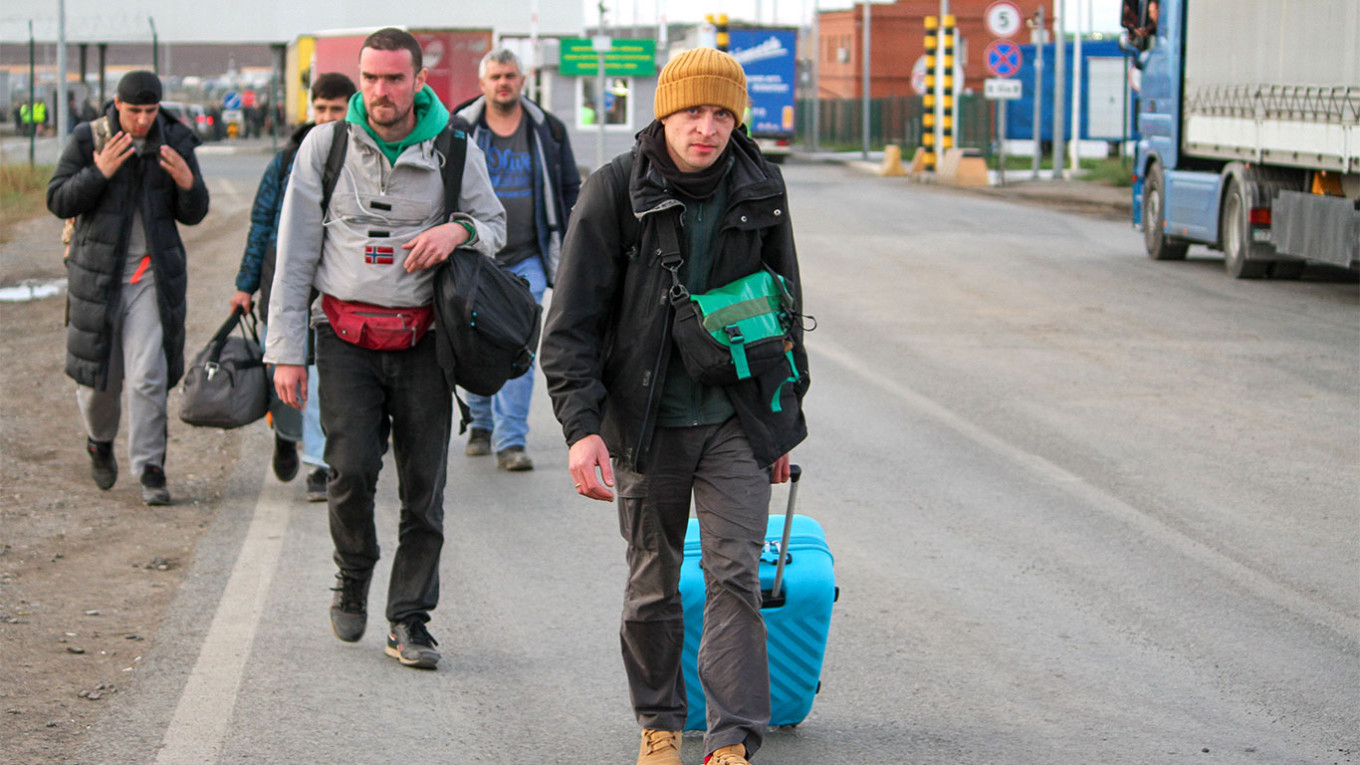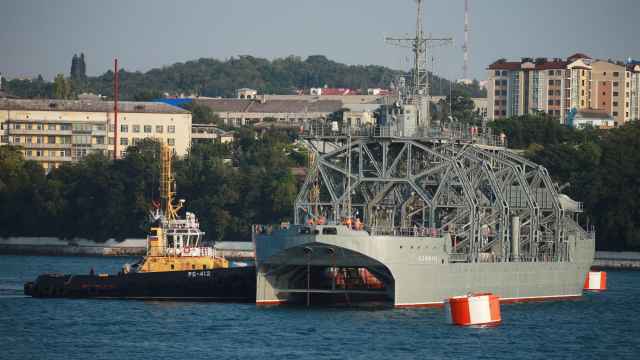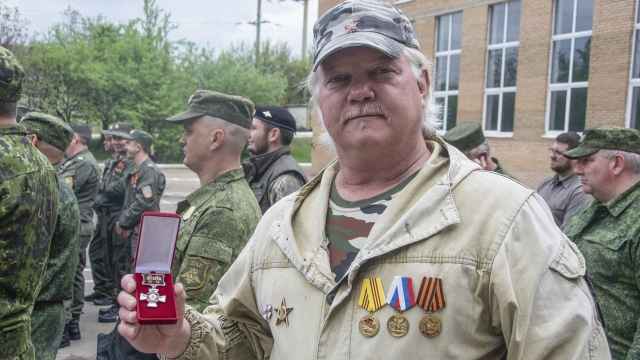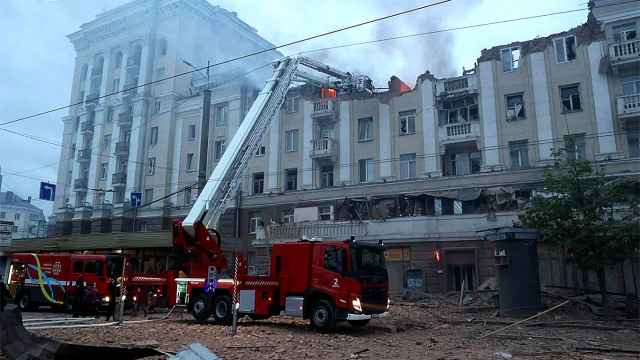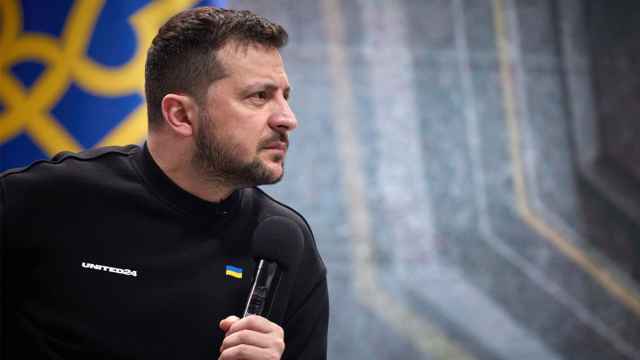In the seven months since Russia’s invasion of Ukraine, the other former Soviet states have been adhering to a set of unwritten rules. Moscow realized that putting excessive pressure on its neighbors could destabilize the region, and therefore refrained from making too many demands of them. They were not required, for example, to recognize the self-proclaimed Donetsk and Luhansk people’s republics, or express support for the “special operation”: it was enough to remain neutral.
The main condition was to not supply Ukraine with weapons and ammunition (Kazakhstan suspended all of its weapons exports, just to be on the safe side). Humanitarian aid, in contrast, was allowed. Even pro-Ukrainian media publications and statements by opposition politicians were tolerated.
The new balance appeared fragile, but could probably have endured for some time if not for Russia’s announcement of a partial mobilization, which has destroyed the barely established status quo, forcing neighboring states to adopt a more decisive stance.
The mobilization has created two problems for Russia’s neighbors. On the one hand, huge numbers of Russians have been fleeing the country to avoid being called up: 100,000 arrived in Kazakhstan alone in just one week. On the other hand, the Russian authorities have been openly targeting labor migrants from neighboring countries, offering good pay and a fast-track citizenship process in exchange for joining the army.
Alarmed by the prospect of their nationals returning home with combat experience gained in Ukraine, foreign ministries in Uzbekistan, Tajikistan, and Kyrgyzstan reacted swiftly to Moscow’s offer, reminding their citizens that fighting abroad is a criminal offense. Local religious authorities expressed similar views, saying that “Muslims today should be more cautious and vigilant than ever. One should not intervene in conflicts at a time of strife and misfortune that threaten human development.”
Those appeals weren’t just addressed to Central Asians seeking to obtain a Russian passport, but also to those who already hold one in addition to their Uzbek, Tajik, or Kyrgyz citizenship. They would face legal ambiguity, since the same individual could be considered either a decorated veteran or a criminal, depending on which passport is taken into account. The question of whether prisoners of war should be returned to their respective home countries or to Russia could also ultimately cause serious tensions between Moscow and the Central Asian capitals.
The other conundrum is what to do with the tens of thousands of Russians who have fled to neighboring countries. Kazakhstan faces the biggest influx, due to its enormous open land border and extensive railway links with Russia. Right now, Russia’s neighbors are hoping that many of the new arrivals will soon move on to greener pastures, but not everyone will be able to do so, given that the EU is limiting the number of visas issued to Russian nationals. It’s more likely that the Russian emigres will relocate within the post-Soviet space: say, from Tajikistan to Kazakhstan, or from Uzbekistan to Georgia, Azerbaijan, or Armenia.
Many of these states are Russia’s partners in the Collective Security Treaty Organization (CSTO), so theoretically they should at the very least refrain from harming each other’s defense capabilities and refuse to shelter draft dodgers. But so far, the post-Soviet states are simply following the letter of the law. The Kazakh and Uzbek authorities have already stated that they are only obliged to extradite Russian nationals to Moscow if they have been put on international wanted lists, which are reserved for more serious offenses than draft evasion.
This official position is in sync with public opinion in those countries. Locals generally sympathize with the Russian arrivals, though that sympathy is also sometimes tempered by suspicion and even fear. Given Putin’s penchant for launching wars with the purported aim of protecting ethnic Russians in those countries, the idea that tomorrow he may decide to “protect” those Russians who have escaped his grip no longer seems entirely outlandish.
Any immediate problems caused by the newcomers look set to be somewhat more mundane, however. There was already a shortage of places in Central Asian schools and kindergartens even before the Russian influx, while those renting apartments in large cities are worried by reports of people being evicted just so that their landlords can relet the property to Russians for twice the price.
Nationalists, meanwhile, fear that the Russian influx may alter the ethnic compositions of their countries, especially in areas like northern Kazakhstan or Kyrgyzstan’s capital Bishkek, where ethnic Russians already constitute a significant percentage of the population.
The wave of Russian migration comes at a time when political tensions are running high in every one of the post-Soviet countries. Kazakhstan is undergoing a structural transformation that began following the January unrest and should conclude with a snap presidential election in November. Uzbekistan is in the process of constitutional reform that has already led to bloodshed. Kyrgyzstan and Tajikistan recently saw a fresh round of border clashes, and their conflict remains unresolved. Armenia and Azerbaijan are again locked in battle over the Karabakh region.
So far, only Kazakh President Kassym-Jomart Tokayev has dared to make a veiled comment on the cause of the exodus of Russians following the mobilization announcement. “Most of them have to leave because of the current desperate situation,” he said.
Still, to avoid problems down the line, Kazakhstan is working on making its immigration legislation stricter. Under a new draft law, more extensive documentation that most Russians simply won’t have time to obtain back home would be required to obtain a Kazakhstani residency permit, without which Russians can only stay in Kazakhstan for up to ninety consecutive days.
Russians are in for an even more lukewarm welcome in Uzbekistan, which is not a member of the CSTO and the Eurasian Union, and maintains some distance from Moscow. Russians can stay there for no more than 15 days without temporary registration, and no more than 60 days with it.
The Kyrgyz and Armenian authorities, who market their countries as IT hubs, are more welcoming. But that might change, since the stereotype that most of the newcomers work in IT is already outdated, and some have no intention of working at all.
Possible conflicts between the newcomers and locals will soon force government officials in the post-Soviet states to adopt more concrete positions on the choice Russians are making in the face of being sent to Ukraine, as well as on Putin’s policies that precipitated that choice. Russia’s post-Soviet neighbors are likely to continue to distance themselves as far as possible from the problems Moscow creates and refrain from comments, or at least limit them to cautious phrases about the “sanctity of states’ territorial integrity.” But as more Russians flee to neighboring countries and more citizens of those countries join the fight in Ukraine, their governments will find it increasingly difficult to ignore these developments.
Sooner or later, they will have to call it what it is, especially because the public is likely to support any criticism of Moscow. So far, Kazakhstan is the only country to have openly refused to recognize Moscow’s recent sham referendums in occupied Ukrainian territory. Tokayev, who has previously described the Donetsk and Luhansk people’s republics as “quasi-states,” is clearly enjoying his newfound reputation as a maverick who has thrown down the gauntlet to Putin. Others will likely follow suit.
This article was first published by the Carnegie Endowment for International Peace.
A Message from The Moscow Times:
Dear readers,
We are facing unprecedented challenges. Russia's Prosecutor General's Office has designated The Moscow Times as an "undesirable" organization, criminalizing our work and putting our staff at risk of prosecution. This follows our earlier unjust labeling as a "foreign agent."
These actions are direct attempts to silence independent journalism in Russia. The authorities claim our work "discredits the decisions of the Russian leadership." We see things differently: we strive to provide accurate, unbiased reporting on Russia.
We, the journalists of The Moscow Times, refuse to be silenced. But to continue our work, we need your help.
Your support, no matter how small, makes a world of difference. If you can, please support us monthly starting from just $2. It's quick to set up, and every contribution makes a significant impact.
By supporting The Moscow Times, you're defending open, independent journalism in the face of repression. Thank you for standing with us.
Remind me later.



